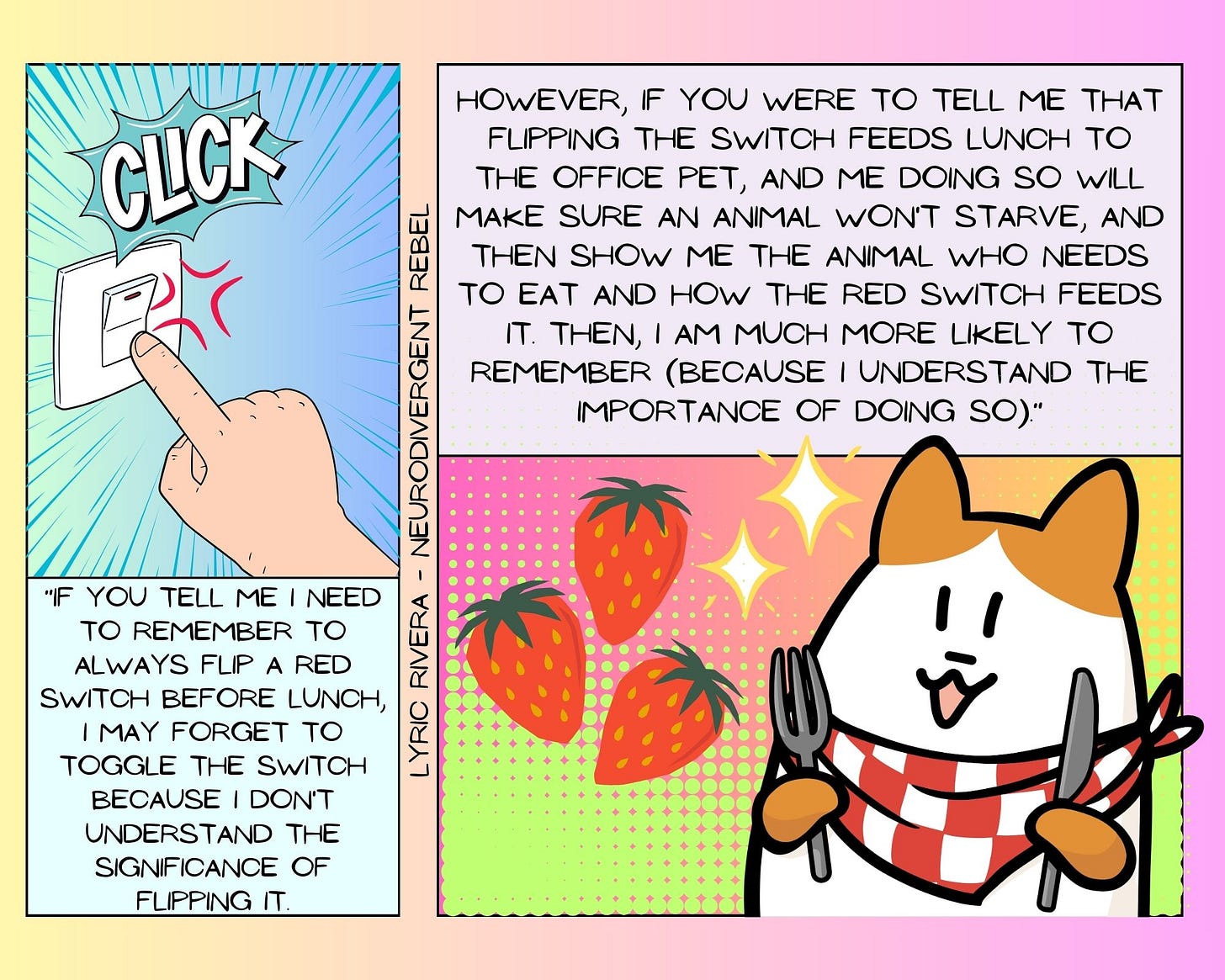Alternatives to ABA: If not ABA... then WHAT? - Helping Autistic People With "Self-Care Skills"
Whenever I mention my feelings on ABA, someone always asks me for "alternatives to ABA." - PT 2 in a series on the alternative to ABA
In my last piece, Alternatives to ABA: If not ABA... then WHAT? - ABA for "Problem Behaviors," I shared how behavior can often indicate unmet needs and why squishing "inconvenient behaviors" also may extinguish communications to you that something is wrong.
In the piece's opening, I mentioned several common ABA goals listed on Autism Speaks' website (below), and in its closing, I asked my readers which of the items they wanted me to dive into next.
The remaining ABA “goals” were:
Increasing communication and language
Learning (to emulate non-autistic) social skills
Self-care skills
How to play "appropriately"
Motor skills
Academic skills.
The first request I saw was to talk more about "helping Autistic People with learning self-care skills," - so that is the topic I will cover today.

Helping Autistic People with Self-Care Skills
In our look at helping Autistic People with self-care skills, I would be remiss if I did not first explain why self-care skills can be difficult for many Autistic People.
I type this as I sit here in yesterday's clothes, with my messy, unbrushed hair pulled back, fly-aways floating around my head like little springs, my face unwashed, and my teeth unbrushed.
I plan to clean myself up later in the day, but because I jumped straight into work (quickly falling into hyperfocus) this morning, inspired and excited about this topic, these things will have to wait.
I'm not seeing anyone today (except David - who won't judge me for being a mess).
Being hyper-focused on something can be one reason an Autistic Person struggles with self-care tasks (which can seem unimportant to us compared to the thing we're currently fixated on).
Sometimes, hyper-focusing on something for a while, for me, IS self-care (as long as I'm not focused on something that's stressing me out).
Autistic self-care sometimes looks different from non-autistic self-care, and Autistic People sometimes need more downtime and time for recovery and self-care because we live in a world that's exhausting for us (because it doesn't take our needs into consideration and treats us like we're lesser).
Self-care in all its forms is something Autistic People should be encouraged to embrace, especially considering how many of us end up burning out as adults (and even as children).
Paid subscribers have access to the full post as a thanks for supporting my work.
Keep reading with a 7-day free trial
Subscribe to NeuroDivergent Rebel’s Substack to keep reading this post and get 7 days of free access to the full post archives.




